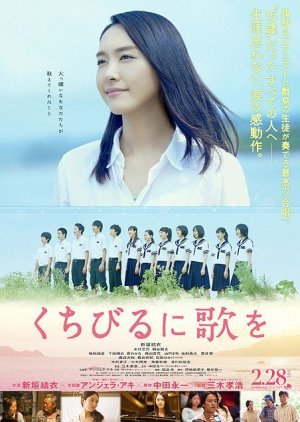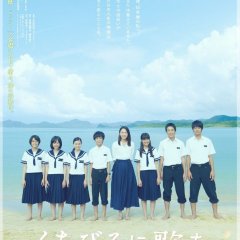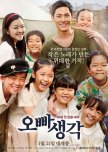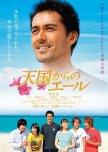 J-Drama National Tour - Part 2
J-Drama National Tour - Part 2 Yuri Kashiwagi is a genius pianist and part-time teacher in Tokyo. When her former colleague Haruko goes on maternity leave, she asks Kashiwagi to take over for her as the choral advisor at a middle school on one of the Goto Islands in Nagasaki Prefecture. When Kashiwagi arrives, her first assignment for her new students is to write a letter to themselves 15 years in the future. The letters they write eventually reveal their secret worries and concerns about reaching adulthood. Edit Translation
- English
- 中文(台灣)
- magyar / magyar nyelv
- dansk
- Native Title: くちびるに歌を
- Also Known As: Kuchibiru ni Uta o , Song on Lips ,
- Director: Miki Takahiro
- Screenwriter: Mochiji Yukiko, Toyone Yuichi
- Genres: Music, Youth, Drama
Cast & Credits
- Aragaki Yui Main Role
- Tsunematsu YuriTsunematsu NazunaSupport Role
- Shimoda ShotaKuwahara SatoruSupport Role
- Aoi WakanaSekiya ChinatsuSupport Role
- KyokaTsuji EriSupport Role
- Yamaguchi MayuHasegawa KotomiSupport Role
Reviews

Soapy Middle-school Story Based on a Song
Three years into a very successful career as singer-songwriter in 2008, Angela Aki released her 8th single "Tegami (Haikei Jūgo no Kimi e)" or "Letter: Dear 15-yearold Me". The song was then used in the following year as competition song in a national competition for middle-school choirs and NHK produced four documentaries following Aki to various middle-schools as the children rehearsed the song for the competition. One of those documentaries served as inspiration for a 2011 novel by Nakata Eiichi, a pen-name of the extremely prolific writer Otsuichi, and that novel is the basis for this 2015 film. The song itself has since become the standard graduation song for middle-school graduation ceremonies in Japan.The story is set in a small island town near Nagasaki, and centers around three characters: third-year student Nazuna who is the captain of the choir club, Kashiwagi-sensei who was a well lauded classical pianist and who has returned to the island to serve as a substitute teacher for a year and first-year student Satoru. The film slowly reveals the backstories of these three characters as Kashiwagi disrupts the old way the choir was run by allowing boys with all their cooties to join the group. All three of the characters have very soapy pasts and the plot is overly reliant on convenient plot timings for events that otherwise would have little chance of being conincident. But the film does build to a lovely climax at the provincial choir competition in Nagasaki City with a truly moving performance of Aki's song by the choir.
If you love the song, then this film is probably a must-watch. For the more general viewer, the film is still quite good with some excellent performances by the three main actors as their characters go through a year of growth which does reflect well the dialogue within the lyrics of the original song.
Was this review helpful to you?






















































